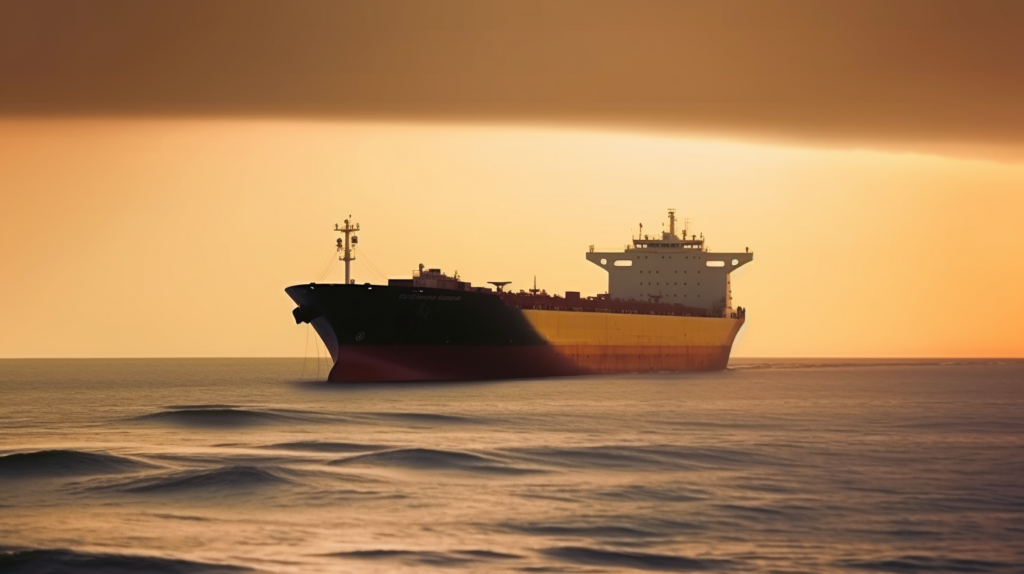The International Chamber of Shipping (ICS) Secretary-General Mr. Guy Platten, recently spoke at a monthly luncheon during the 65th Anniversary event of The Hong Kong Shipowners Association in Hong Kong. He spoke on the topic of ‘Future fuel demand and seafarer training – an interlinked journey towards 2050’ and how much more needs to be done in terms of decarbonization and the challenges that it brings with it. He mentioned the ‘Maritime Just Transition’ concept in his talk. This article will explain what Maritime Just Transition is, how it impacts seafarers and seafarer training, and the fundamental principles of the Maritime Just Transition Task Force.
The maritime industry plays a crucial role in the global economy; more than 80% of global trade is done by sea. However, Maritime Industry also poses significant challenges in terms of sustainability, including high emissions, pollution, and seafarers’ working conditions onboard ships.
The ICS and the International Transport Workers’ Federation (ITF) established the Maritime Just Transition Task Force to address these challenges.
What is “Maritime Just Transition”?
Changing to a more sustainable and equitable maritime industry while ensuring seafarers, communities, and sectors affected by the change are not left behind is known as “the maritime just transition.” Significant changes to the industry’s fundamental operations are involved in the changeover. It involves measures like using cleaner fuels and energy-saving technologies, putting money into environmentally friendly infrastructure, and opening up new work opportunities. These adjustments may have an influence on seafarers and how seafarer training is conducted, even if they are important to mitigate climate change and build a more equitable maritime economy.
Impact on Seafarers and Seafarer Training.
The marine business depends heavily on seafarers; therefore, any changes would inevitably have an effect on them. For instance, using energy-efficient technologies and greener fuels will necessitate new training programmes for seafarers to safely handle these new technologies. Another example is the development of new employment prospects in the marine industry that is more sustainable, which would necessitate new training and new skill sets for seafarers to work in these fields.
Additionally, it would be necessary to make substantial investments in infrastructure and technology to transition to a more sustainable and equitable business, which might result in higher prices for shipping companies. In the short term, this might also have an impact on the seafarers. In order to prevent seafarers from being left behind in the transition and to guarantee that they get the support and training they need to adapt to changes in the maritime industry, the Maritime Just Transition Task Force was established.
Fundamental Principles of the Maritime Just Transition Task Force:
The Maritime Just Transition Task Force has developed a 10-point action plan to guide the maritime industry’s transition to a more sustainable and equitable future. This approach is founded on fundamental principles such as:
- Greening the Industry: As the marine industry contributes considerably to global emissions, the task force pushes for the use of cleaner fuels and energy-efficient technologies to cut emissions. This principle also covers lowering ship speeds and optimising ship routes to reduce fuel usage.
- Job Creation: As the move to a more sustainable industry would include the development of new skills and knowledge, the task force intends to create job possibilities through investments in sustainable infrastructure. This approach covers the development of green ports and the promotion of renewable energy sources.
- Social Protections: The transition may result in certain job losses, particularly in the fossil fuel-based sectors. As a result, the task force pushes for proper social safeguards and assistance to those affected, such as financial compensation, retraining, and job placement services. This approach also includes the establishment of safety nets for workers who lose their jobs because of the transition.
- Community Involvement: The task force recognises the necessity of engaging with local communities and ensuring their perspectives are heard throughout the transition process. This would entail engaging with community members, generating opportunities for community participation, and addressing any concerns or grievances. This concept encompasses the protection of indigenous people and other local communities’ rights.
- Equity: The task force advocates for equitable distribution of the transition’s advantages and costs among all groups. This would entail resolving existing inequities and ensuring that the shift does not disproportionately impact marginalised groups. This includes encouraging diversity and inclusion in the marine industry.
- Training and Education: The task force recognises that transitioning to a more sustainable industry would necessitate the acquisition of new skills and knowledge. As a result, it emphasises the significance of offering training and education programmes for seafarers to adapt to industry developments. This principle includes creating chances for lifelong learning and upskilling for seafarers.
Overall, the Maritime Just Transition Task Force seeks to develop a sustainable and equitable maritime industry while ensuring that seafarers and other stakeholders are not left behind. These essential principles provide a framework for achieving this goal and ensuring that the transition’s benefits and costs are divided fairly. By adhering to these principles, the Hong Kong shipping industry may help accelerate the implementation of a fair transition, resulting in a more sustainable and equitable future for all stakeholders.

